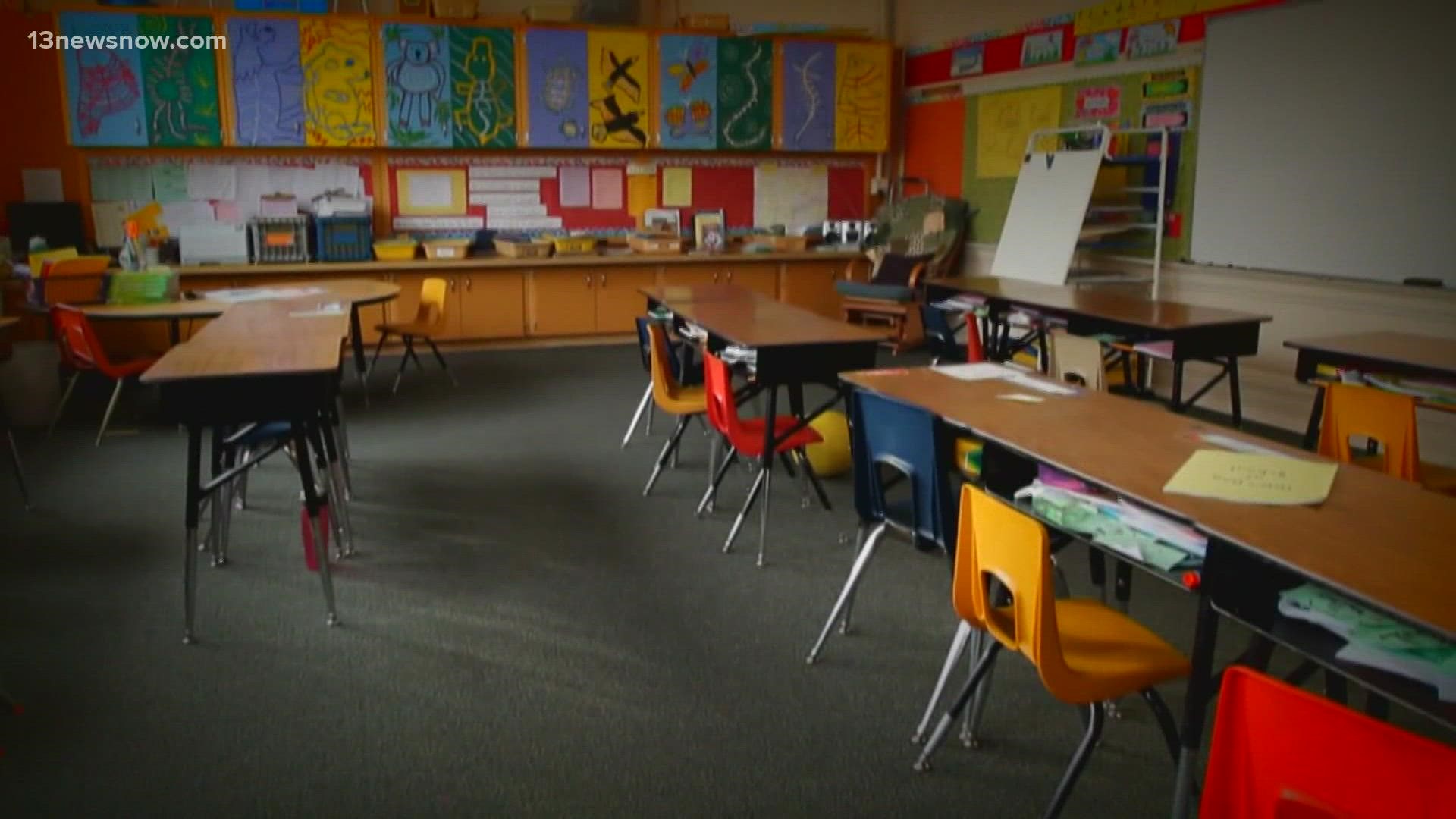PORTSMOUTH, Va. — All the shouting over face masks may be drowning out a more important debate: a debate not just about the health of students, but also their wellbeing.
The COVID-19 pandemic has shined a bright light on inequities in public education, inequities rooted in the digital divide, deepened by poverty, and threatening to create a lost generation.
"There's so much literature that shows that disadvantaged kids, particularly, only thrive academically if they are in a supportive school environment," said Dr. Nazneen Kahn, an Associate Professor of Sociology at Randolph-Macon College.
Kahn's most recent research documented the unequal impacts of COVID-19 on kids.
"Teachers have even said that skipping school entirely is only less effective than online learning has been for kids in marginalized communities," Kahn said.
Inequities are not new to Portsmouth Public Schools, the area's most urban district.
"We won't fix everything this school year with what we've lost over the last 15 months being on a virtual platform," said Portsmouth School Superintendent, Dr. Elie Bracy.
When school switched suddenly to virtual learning last year, Bracy said the district scrambled to find more than 4,500 Chromebooks for elementary school students. School buses with hot spots rolled into neighborhoods to support families that could not afford internet service.
"We have some unique challenges here. It didn't take the pandemic to bring this to light. We've been dealing with this for years," Bracy said.
Portsmouth has a high number of students who rely on their schools for meals and who start school behind academically.
"We have kids that are coming out of neighborhoods, in those communities, who don't have access to any books in their homes. The first introduction to textbooks, or any type of book, is when they come to school," Bracy added.
Kahn said many students will return to classrooms this fall academically unprepared for their grade level and having experienced chronic stress at home.
"A lot of kids -- especially Hispanic boys and girls -- have had to drop out of school to help support families. A lot of Latinx girls are watching younger siblings because their parents are in essential jobs," she said.
Kahn added that teachers who need the most support often receive the least: fewer opportunities for professional development, fewer classroom aides.
The impacts of poverty can be deep and lasting, Kahn said, particularly when poverty is experienced at a very young age and for longer periods of time. To reverse the trend, she said the structural causes of poverty must be addressed, including addressing the pay gaps, raising the minimum wage, and federally mandated paid maternity and paternity leave.
If there is something good that's come from the pandemic and the inequities it revealed, it's that today there's a heightened awareness about how we fund school divisions that don't have the resources their neighbors have.
The American Rescue Plan helped Portsmouth to purchase critical technology. The Child Tax Credit is already showing that when people receive money that supports everyday family life, they use the money to feed their kids and provide housing, Kahn said.
For now, both are "short-term fixes" and not a long-term strategy to deal with a widening gap between the "haves and have-nots."
"I hope that there will be enough data and evidence to demonstrate the good that's been brought about by these programs, and we can continue to do them," Kahn said.

